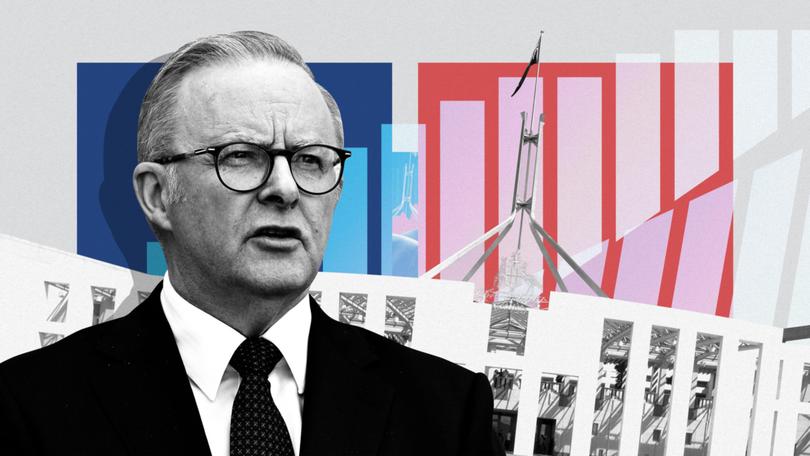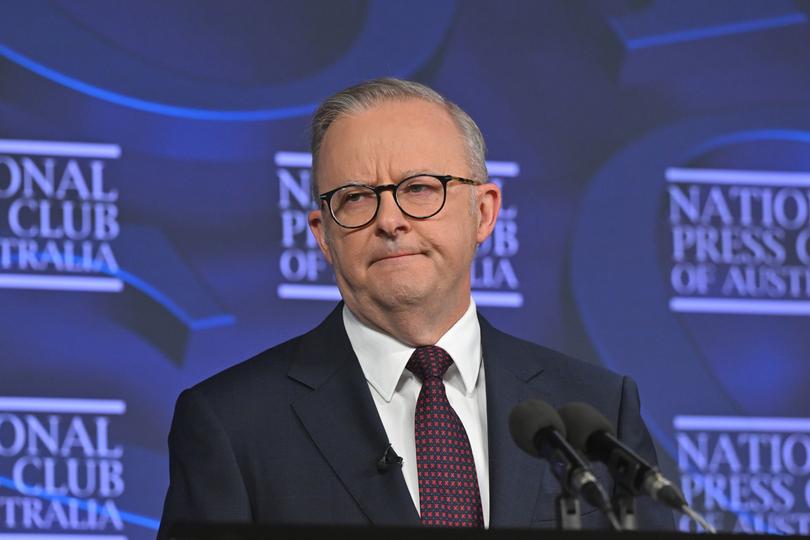MARK RILEY: Election timing may hinge on whether we get a February rate cut
MARK RILEY: There are many unknowns about the coming Federal election. But one thing is for certain: it won’t be an early election.

There are many unknowns about the coming Federal election.
But one thing is for certain: it won’t be an early election.
It can’t be.
Sign up to The Nightly's newsletters.
Get the first look at the digital newspaper, curated daily stories and breaking headlines delivered to your inbox.
By continuing you agree to our Terms and Privacy Policy.The average length of parliamentary terms since federation is two years and 130 days.
This Government passed that mark in the first week of October.
That means that any election called from now couldn’t really be considered “early”.
On historical comparisons, the Government has already run full term.
That has been Anthony Albanese’s commitment from the outset.
He’s even argued that three years is too short and that terms should run for four years.
But that would require a referendum. And he’s had one of them. It didn’t go well. Another is highly unlikely.
The big question buzzing around Parliament House in this first sitting of the year is whether the Budget will go ahead as planned on March 25.
If it does, the election will be in May.
If it doesn’t, it will be in April.
With WA already on the hustings for a March 8 State poll, we can rule out a March Federal election.
Albanese is not going to subject WA voters to the special hell of duelling electoral circuses.
Meanwhile, he is playing cute about the Budget.
He says it is “scheduled” or “planned” for March 25. But he hasn’t so far confirmed that it “will” proceed as scheduled or planned.
It is what prime ministers do. They play with opposition leaders’ heads for as long as they can to retain the element of surprise on election timing.
And Anthony Albanese, like prime ministers before him, is keeping his thinking on that to himself and a small number of his senior colleagues, advisers and officials — none of whom is saying anything.
So, most of Parliament House — from minions to ministers — have been left to theorise about why the PM would or wouldn’t have a Budget.

There are pros and cons on both sides.
To the pro-Budget camp, it is a no-brainer.
A budget is one of the few compelling devices a government has at its disposal to command the attention of voters and lay out what it is doing to improve their lives.
Yes, a lot of average Australians with real problems to worry about would view Budget day as question time on steroids — just a load of puffed-up clowns indulging themselves in some sort of ritualistic theatre of the absurd.
But the natural human tendency towards self-interest would encourage most to at least tune in for long enough to learn what’s in it for them.
Scott Morrison used early budgets as launching pads for both his election campaigns.
It worked in 2019. Miraculously, according to him.
In 2022, it didn’t. But so many voters had turned off him by that stage that nothing would have worked.
There is not the same level of animosity towards Anthony Albanese today.
That makes the option of a pre-poll Budget a compelling one for many in Labor.
Budgets are like honeycomb. They are full of little holes into which Governments can shove money that can be retrieved on election campaigns to fund the things that really mean something to voters — local roads, bridges, community centres, sporting facilities, local health services, etc.
Proceeding with a Budget now and calling an election for May would also increase the Government’s chances of going to the people with at least one and possibly two interest rate cuts under its belt.
With the Government trailing in most polls and Albanese’s popularity on the wane, that could be a real game-changer.
Then there’s the counter-argument.
Budgets are not all good news, particularly when the economy is flat and the international outlook is as woolly as Donald Trump’s bouffant.
It is odds-on that the next Budget will book a deficit.
Having it after the election means the Government could still go to the people with a record of delivering two consecutive surpluses. That is a significant boast. A pre-poll Budget would blow that up.
Budgets also provide platforms for all manner of aggrieved interest groups to complain publicly about what they didn’t get.
So, if there is a rate cut on February 18 the temptation will be to go off to the races the moment the WA election is over.
If there isn’t, then a March budget and a May election becomes more likely. There is no RBA meeting in March. The next chance for a rate cut is in April.
But one thing is for sure — whenever the election is, it won’t be early.
Mark Riley is the Seven Network’s political editor

